Soft skills are like the operating system, while hard skills are the apps.
Hello, future data wizard! Data Scientists often get caught in the hypnotic maze of numbers, equations, and algorithms, there’s something you should know. It’s not only about crunching numbers; it’s also about artistry, which takes the shape of soft skills.
Soft skills take a competent data scientist to a rockstar in the area. So, grab your favourite data-themed beverage, take a seat, and let’s take a look at what it takes to excel in the field of data science.
But first thing first, why do we need it?
STAKEHOLDERS! “Woah”
Who are the Stakeholders?
Individuals, groups, or institutions with a vested interest in the results, insights, or choices that arise from data analysis and data-driven initiatives are referred to as stakeholders in data science. These stakeholders have a variety of roles and responsibilities inside an organization, and their participation is essential for the success of data science activities.
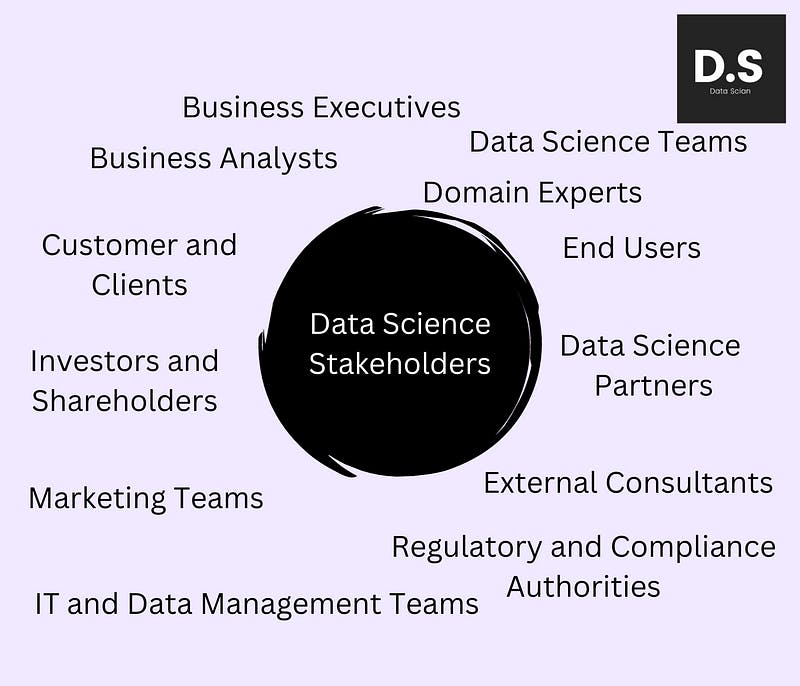
Here are some common types of stakeholders in data science:
Business Executives and Leaders: Senior executives such as CEOs, CTOs, and department heads are frequently the major stakeholders. They establish the strategic goals and priorities for data-driven initiatives and rely on data scientists to give decision-making insights.
Data Science Teams: Stakeholders include data scientists, machine learning engineers, data engineers, and other data specialists inside the organisation. They work together to complete projects, exchange ideas, and achieve project objectives.
Domain Experts: Domain experts are subject matter experts who have an extensive understanding of the industry or a specific topic important to the project. Their knowledge aids in the definition of project objectives and the interpretation of findings in a relevant context.
Business Analysts: Data Analysts play a critical role in transforming data-driven insights into meaningful suggestions. They collaborate closely with data scientists to bridge the technical analysis and business choices divide.
IT and data management teams: These are in charge of data infrastructure, governance, and security. They are responsible for guaranteeing data availability, quality, and regulatory compliance, making them critical stakeholders.
End Users: The ultimate benefactors of data science initiatives are frequently the end users of data-driven solutions or reports, such as marketing teams, sales teams, or customer service professionals. Their input and requirements are important to the project’s success.
Regulatory and Compliance Authorities: Regulatory bodies may be stakeholders in regulated businesses (e.g., healthcare, finance), as data science initiatives must conform to legal and ethical norms.
Customers and Clients: In certain circumstances, an organization’s customers or clients may profit indirectly from data science activities, particularly if they result in enhanced goods or services.
Investors and Shareholders: Investors and shareholders in publicly listed firms may be interested in data-driven choices that affect the company’s financial performance.
External Consultants or Data Science Partners: Organisations may work with external consultants, suppliers, or partners who bring data science knowledge and become project stakeholders.
Beyond Numbers and Algorithms: Soft Skills in Data Science
The Unsung Heroes of data science are soft skills. These Intangible qualities are the secret sauce that transforms a good data scientist into a great one. Here are the top-notch soft skills that are essential for data scientists to thrive in their careers.
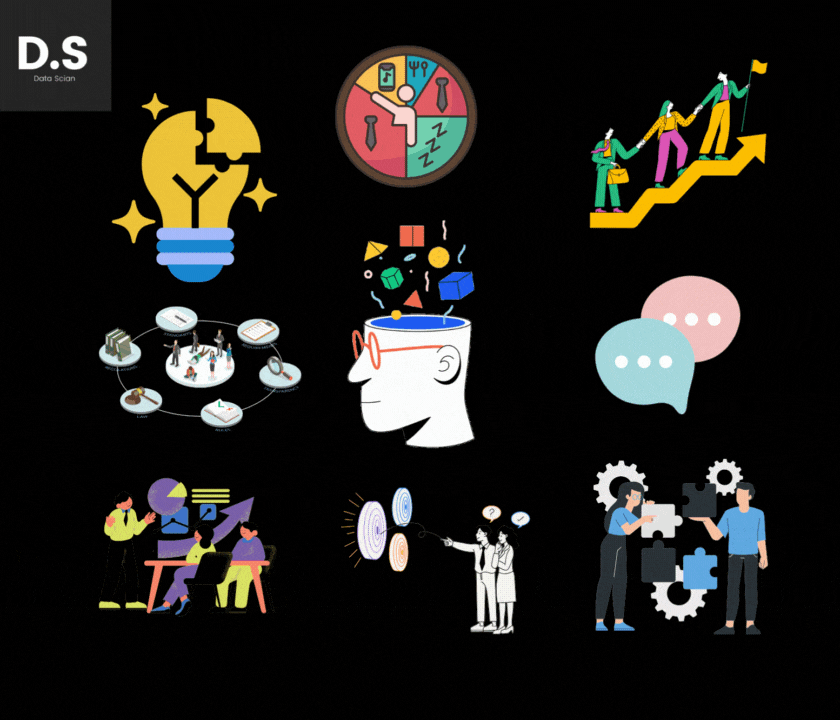
Soft Skills
- Problem-Solving: The Ultimate Data Puzzle
Data science is the ultimate puzzle-solving game. Data scientists are the digital equivalent of Sherlock Holmes. They like analysing complicated problems, connecting the connections, and uncovering hidden insights in data.
Assume you’re a detective with a Business Executive as your primary stakeholder. They are similar to a police chief, and they want you to solve a complicated case (data problem) for the corporation. As you acquire clues (data), connect the dots, and give a clear answer, your problem-solving abilities come into play.
2. Critical Thinking: Data Detective
Data isn’t always cooperative. It’s like a devious mystery, and you must be the detective who solves it. Critical thinking serves as a magnifying glass, allowing you to see biases, limits, and flaws in your analysis.
Consider the following scenario: you are working with a Domain Expert who is well-versed in the business. They serve as your trusted guide through a vast jungle of data. Your critical thinking abilities assist you in navigating the thicket of knowledge and avoiding becoming lost in the woods.
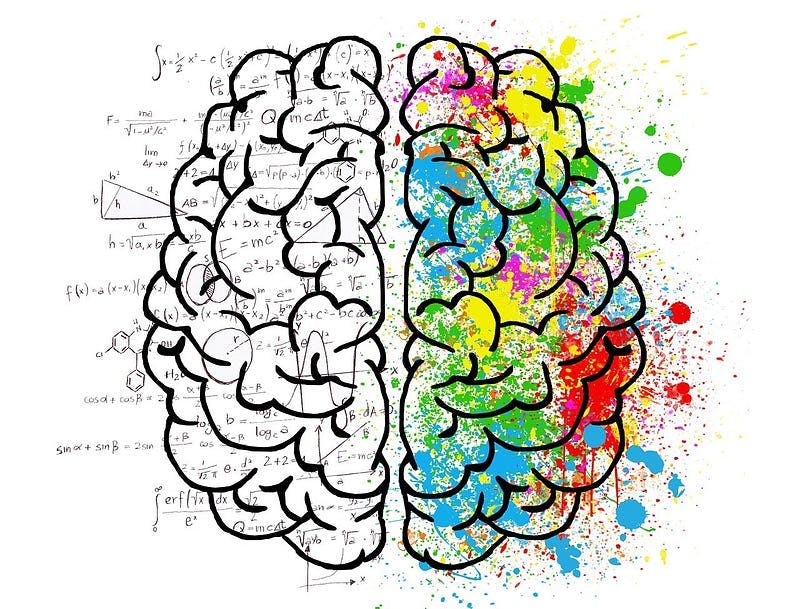
3. Curiosity: The Spark of Discovery
Curiosity not only killed the cat, but it also transformed ordinary facts into astonishing discoveries. Data scientists are inherently inquisitive individuals who are constantly eager to investigate, examine, and find the hidden jewels hiding inside the data mines.
Imagine your Data Science Team colleagues. They are your data adventure companions. Curiosity serves as your collective compass, fueling your collective drive to explore new data regions, unearth hidden insights, and continually improve your approaches.
4. Communication Skills: Data Storytelling
You’ve solved the riddles of data, and now it’s time to share your findings with the rest of the world. Data scientists are storytellers; they spin engaging yarns with data as ink and insights as plot twists.
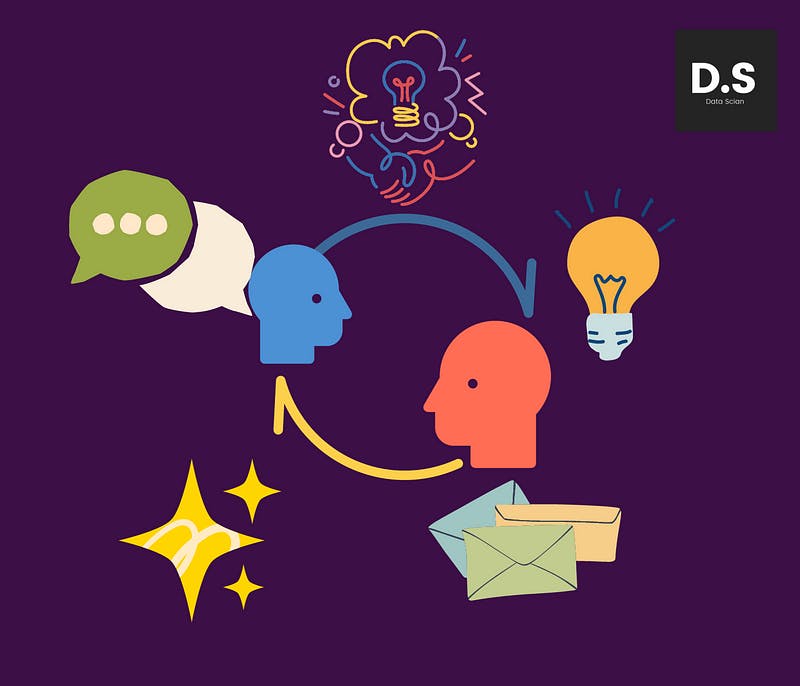
For Example, You’re in a meeting with Business Analysts, who serve as the link between your technological and business worlds. Your diplomatic passport is your ability to communicate effectively. You interpret sophisticated data jargon into their common language, ensuring that everyone is on the same page and that is a big win for everyone especially for you.
5. Teamwork: Data Collaboration
Data science is a collaborative endeavour. You’re not alone on your voyage; you’re accompanied by engineers, domain experts, and business gurus. Your hidden weapons are being a team member, sharing your thoughts, and speaking the language of teamwork.
Your IT and Data Management Teams are your technological guardians, ensuring that data flows smoothly. Consider them your tech sidekicks. The dream is made possible via collaboration. You work together to keep the data fortress safe.
6. Adaptability: The Shape-Shifter
Things move quicker in the digital world than you can say “algorithm.” New tools, methods, and fashions sprout like mushrooms after a rain. To remain ahead of the game, you must be as versatile as a chameleon(Not in a bad way).
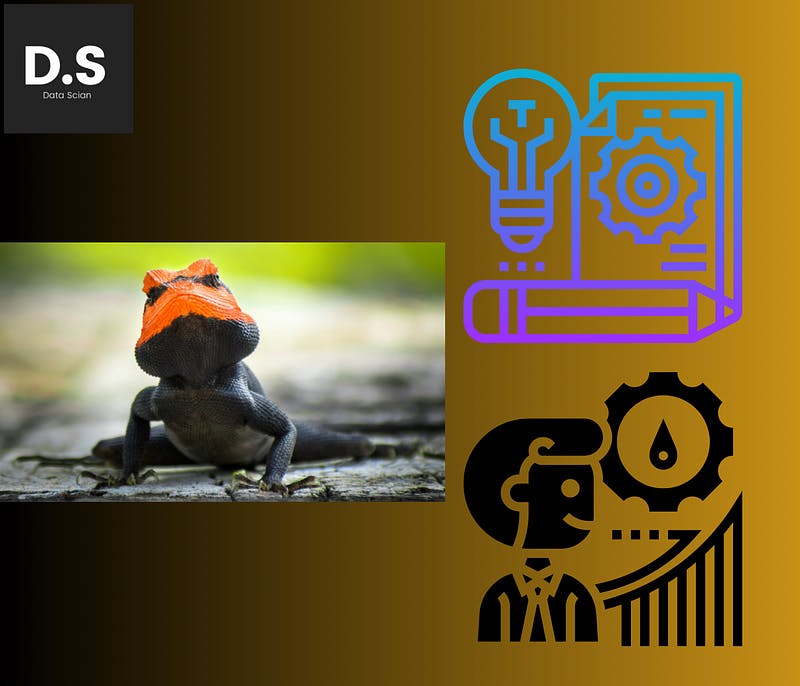
Adaptability
Just as a chameleon, seamlessly blending in with your End User team. They are the true heroes on the front lines, utilising your data insights to solve business problems. Being flexible guarantees that your solutions fit perfectly and solve their specific needs.
7. Time Management: The Juggler
Data scientists excel at multitasking. You must juggle many tasks and deadlines like a circus act.
This seems like a heinous act but sometimes we have to push and manage beyond our measures. It all comes down to prioritising things, meeting deadlines, and making every second count.
When you multitask like a champ, juggling various tasks while your Regulatory and Compliance Authorities keep an eye on you(How dare they do that!). Time management is your superpower, allowing you to fulfil deadlines and keep everything in order.
8. Ethical Considerations: The Data Guardian
Data is about people as well as statistics. Data scientists are the digital realm’s stewards of ethics. You negotiate the perilous seas of privacy and bias to ensure that data is treated with dignity and justice.
As an advocate of ethics, you guarantee that your data solutions are spotless, satisfying even the most demanding regulators. When working with sensitive data(Like analyzing domestic violence), your ethical radar ensures that you obey the regulations.
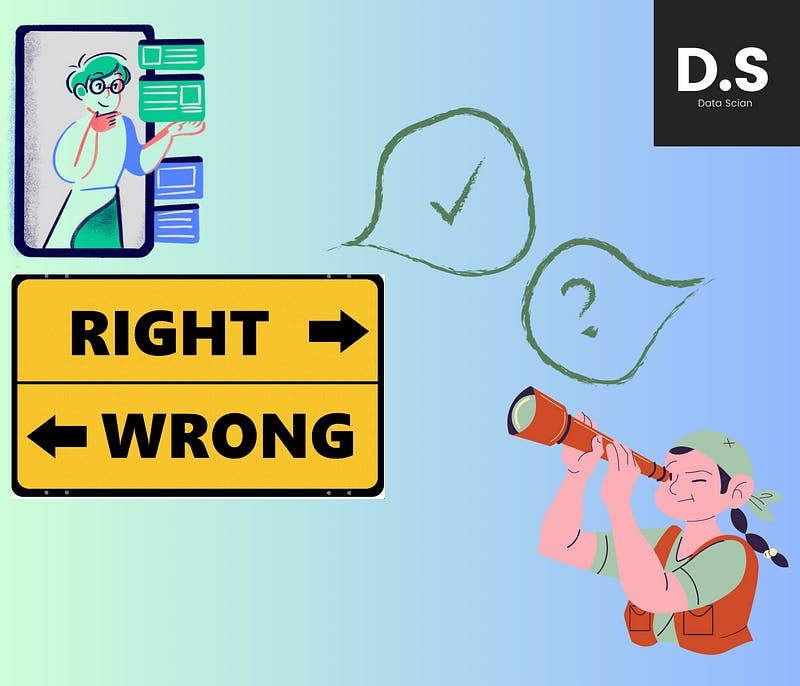
Ethical Consideration
9. Business Acumen: Beyond the Numbers
Data is about more than simply data; it is also about business. Understanding the larger company environment and goals is critical. Your recommendations are not just data-driven, but also business-savvy.
Business Acumen is your reliable partner that assists you in understanding the larger business context and speaking the language of your Business Executives. It’s similar to having a secret code to open a treasure box of business chances.
10. Resilience: The Data Warrior
Data science is an adventure, and voyages are not always easy. You’ll face difficulties, storms, and undiscovered territory. Resilience serves as your armour, allowing you to weather setbacks, learn from mistakes, and emerge stronger.
Final Thoughts:
So, in the realm of data science, soft skills aren’t simply extras; they’re your trusted companions, guiding you through the diverse combination of stakeholders and ensuring your data quests are fruitful! These Soft skills are the secret source that will make you a true data sorcerer.
Having said that! Here is the Complete Roadmap for your data science journey: 7-Stage Roadmap for Data Science (With Courses), If you are a Book Wizard: Ultimate Guide: Books for Data Science.
Don’t forget to Follow.
Now, go and conquer the data universe!
